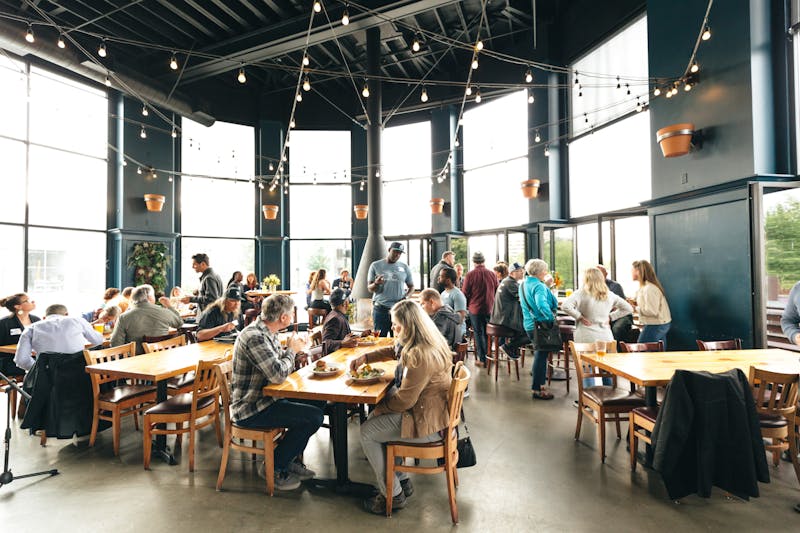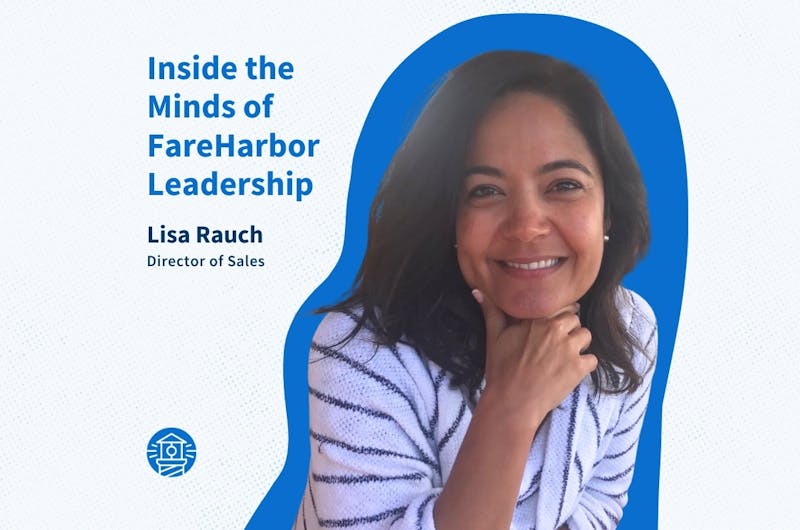4 Ways Tour Companies Can Target Customers with PPC Advertising

Winter or summer. Skydiving or snorkeling. The desire to travel and explore the world has not changed over the last century and likely won’t change in the future. What has evolved drastically is the way we plan and book travel. A disruption made possible by the internet.
The internet opened a whole world of information and mobile technology did the rest by changing the way we search and make purchases indefinitely. *Cue The Travel Customer Journey,* or what Google has identified as the newest path in which customers are mapping out their vacations.
With this shift, digital advertising is almost a necessity in order to maintain a strong online presence. Over 74% of both leisure and travel planning starts online. 57% of people claim they begin by using a search engine, so getting set up with a robust paid search strategy is critical.
The world of paid advertising can be tricky, but when done right, it can be extremely successful. Pay-Per-Click (PPC) is one of the fastest ways to validate your tour offerings and generate leads. Essentially, PPC is the ability to buy advertising from search engines like Google, and only pay when someone clicks on your ad. By identifying the keywords your customers are using to find your business, you can set up parameters to target that exact audience. Google AdWords is a great place to start learning more about keyword targeting.
By targeting qualified customers who are actively searching, paid advertising has a 50% higher conversion rate than organic search. Position your PPC ads to hit your customers during the right time in their traveler customer journey. Let’s break it down:
1. Dreaming – Introducing the Dream Team a.k.a. Your Business
These customers have just begun the trip-planning process, and are mostly looking for travel inspiration. Show ‘em what you’ve got!
Customer Problem: What Do I Need?
People turn to search engines because they don’t know exactly what they are looking for. This step in the journey usually starts with a broad search; “Fun summer activities,” “boat trips near an ocean.” They are looking for opinions, resources, and inspiration.
Marketing Solution: Define Their Need
Define that need for them. Lead them to your boat tour before they even have a chance to search the second page of Google. By utilizing paid search ads, your business will be seen using those keywords we mentioned earlier that match your ad. When they see your ad, you’re now on their radar for further consideration. You might also make them aware of your tours through inspirational content such as blog posts and social media.
AdWord Tip: Choose generic keywords that drive volume, but not direct conversions. Aiming for ad positions 3 – 4 here will help to improve your overall cost efficiency while ensuring brand exposure.
2. Researching – A World Wide Web of Possibilities
The information-gathering stage, this is where customers begin building a list of potential activities they want to do.
Customer Problem: How can my need be met?
People have chosen a destination. They start looking for the right dates, the best flight, and all the things to do while visiting. They may have some idea of what to do in that area based off of initial research and start to compare options; “Things to do in Boston during summer,” “best boating excursions in San Diego.”
Marketing Solution: Retargeted Ads
Your customer may have learned about you already through an ad or by visiting your website. Once they’ve interacted with your brand by clicking on your ad or checking out your website in the Dreaming phase, keep your tour company name in the forefront of their minds. If a searcher visits your landing page for ATV tours, follow them around with ads showing happy vacationers riding through lush valleys. This will incentivise them to return to your site and puts you in the mix for a conversion.
AdWord Tip: Aim for more specific keywords, often with a location included in them. Ad copy should match these keywords as closely as possible and you should aim for ad positions 2 – 3.
3. Planning – Time For a Reality Check
You’ve made it to the final consideration round. This is where customers start weighing their options.
Customer Problem: Which is the best solution?
Customers have decided on a specific place they want to visit and now they are looking for the best things to do while they are there. This means they will be choosing between you and your competitors in the area. They might be searching for a tour in a specific part of town or an activity that meets a desired price range; “Summer sightseeing tour in Beacon Hill, Boston,” “cheap harbour cruise in San Diego.”
Marketing Solution:
Show social proof by displaying the number of travelers you’ve served on your PPC ads. The copy you use here should address your target market directly. What makes you stand out as the best scooter tours in Denver, or why do people enjoy booking your horseback riding tours? One of the best ways to find this information is to talk to your customers directly.
AdWord Tip: Same as the Researching phase, use more specific keywords with a location included. Match your ad copy with these keywords and aim for ad positions 2 – 3.
4. Booking – First, Second, and Third Impressions Matter
Customers know exactly what kind of experience they’re seeking, and are ready to book!
Customer Problem: How do I buy?
Once customers have made it to the booking stage, they want everything to be as easy as possible. Your PPC approach answered their need, solved their problem and showed them the benefits and features of your tour company! At this point, they are tuned into your company and like what you have to offer; “Bobby’s Boston Walking Tours in Beacon Hill,” “Sunny Dock Cruise Line in San Diego.”
Marketing Solution: Strong Call-To-Action
Retarget one more time and drive urgency by showing deadlines for deals. Everyone likes a deal and chances are, your customers are searching to find one. Even at the luxury end of the tour and activity market, nobody is above a little incentive. If they were on the fence, this might be the very thing that tips them over to book your jet ski rental. SOLD!
AdWord Tip: Use highly specific keywords, often with terms like “book” or “purchase” included in them. Higher bids and higher ad positions are recommended here due to the lower overall volumes and the likelihood of these keywords converting.
Curious about getting setup with PPC and other marketing services? FareHarbor has recently partnered with TRK, a team specialized marketing for tour, activity, and attraction businesses. Head over to toursandactivitiesmarketing.com to see more…


